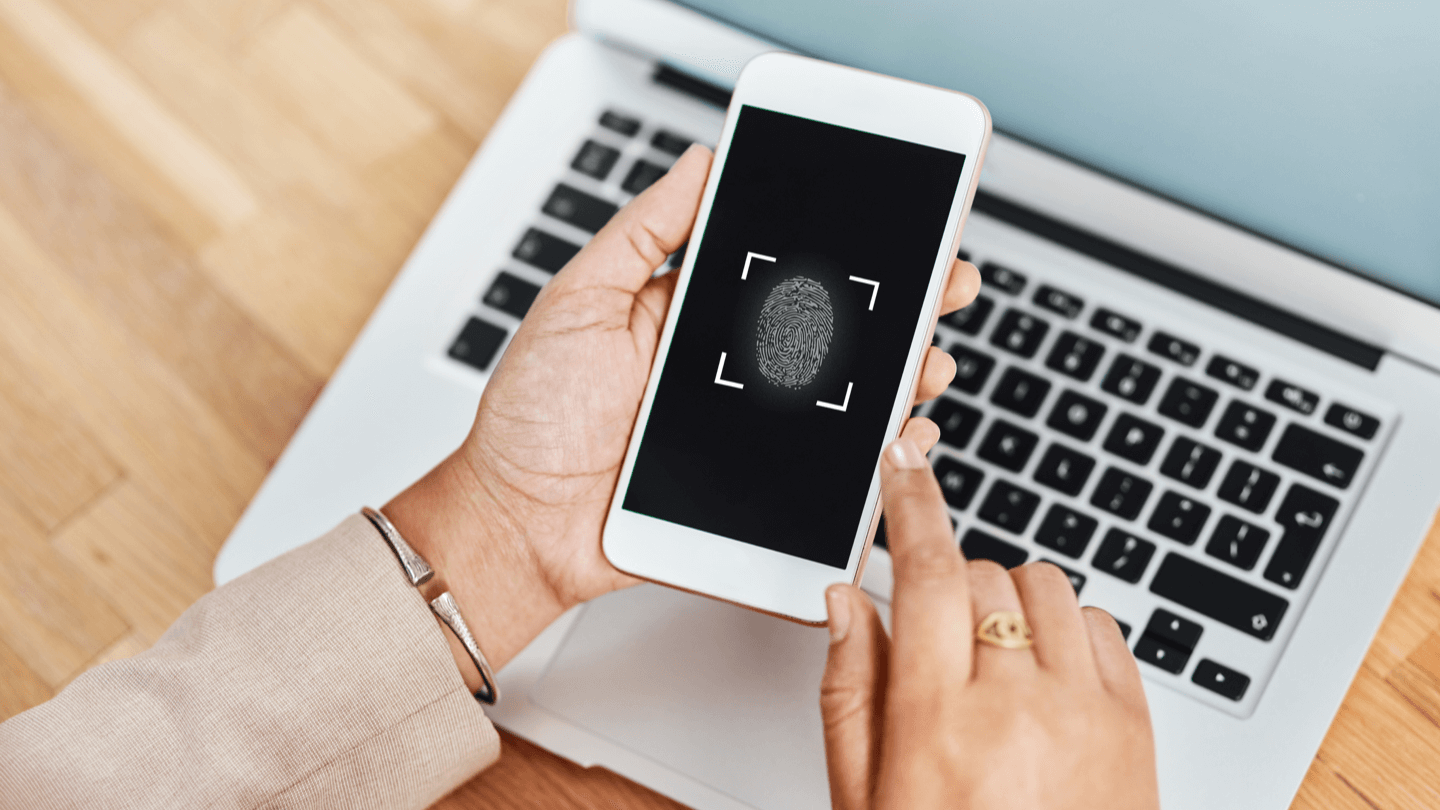The smartphone is the go-to device for banking, shopping, browsing and video-binging. It’s also a breeding ground for online threats of all kinds. Every site you go to, especially for search functions, financial transactions and gaming, tracks you. Your entire world is accessible through your mobile phone, so follow these tips to help protect your sensitive information from hackers and tracking sites.
1. Lock your screen
This is the basic first line of defense. That four-digit code or fingerprint check should be on every phone, but some people don’t bother with it, which is playing with fire. Similarly, the “time out” function that determines when the lack of activity should lock the screen should be set for as short a time as reasonable. This makes it less likely that someone who finds your forgotten phone on a restaurant table will also find it unlocked.
2. Use two-factor authentication
Also known as “2FA,” this means proving you are the authorized user in two ways. To unlock your phone, one would be the PIN; the second could be your fingerprint (as long as it’s not set to replace the PIN for convenience).
3. Be cautious of Wi-Fi/Bluetooth usage
One step to help make it tougher on hackers is to make your phone non-discoverable, a setting you can find in the Bluetooth menu. Public Wi-Fi, too, can be an open door to hackers, who can use it to connect to your phone and load malware onto it or steal information without you even knowing.
4. Beware of spam and phishing emails
Spam and phishing are designed to make you think you need to take action, and when you do, you give personal information to an unauthorized person or group. They appear legitimate at first glance, but a closer look usually exposes them. Don’t click on links you find in these suspicious emails.
5. Back up your data
All phones have some way to automatically set up data backup to a cloud system. Research your particular phone to ensure your files are accessible to you if you lose your phone or are hacked.
6. Update your operating system
Every phone should run the latest operating system version because updated software frequently includes security patches. Don’t keep your phone from updating; turn it off occasionally because updates can load when you do.
7. Use encryption services
These are a way to keep your data safe, even if someone gets access to it. The latest generations of both Apple and Android encrypt data by default, although earlier versions may require enabling it. Encryption services add to this protection and can keep people from listening in to your calls or intercepting your text messages.
8. Use a VPN
A Virtual Private Network keeps your connection to the internet from being seen by others. Your phone doesn’t connect directly to a website; it first goes to the VPN’s server and then to the site. A VPN makes using public Wi-Fi much safer. The best VPN apps don’t store your information.
9. Update privacy settings
Every app has its own privacy settings, and they usually default to the least restrictive, but most will work fine without knowing everything about you, so check them. Instagram and Facebook, in particular, want to learn all about you. Make sure your privacy settings are strict.
10. Check your location-sharing settings
Location sharing is very handy for parents to track children or seniors to have a family member know where they are, but it can be used to provide the wrong person with your exact location. If it’s available on your phone, you can limit the time locations are shared to the time needed or in minutes, which keeps the phone from continually using location sharing. Sharing also drains your phone’s battery.
Tips for iPhone users
iPhones have some built-in security options, but you can do more. For one thing, turn off your location tracking unless you need it to map or find a particular place. To stop location tracking, go to Settings, Privacy, then Location. Pick any app from the dropdown that uses location, and change settings to Never or Ask Next Time. Also, always use the “Sign in with Apple” feature as it doesn’t store or sell your data.
Final thoughts on protecting your cellphone
Using the above security measures on your cellphone can help protect your information from an attack.
Losing your device or having your phone stolen are other matters. If you have an app that tracks your phone, quickly wipe all the data using an app designed for that purpose. Yes, you’ll lose your photos (although you have been backing them up to the cloud all along, right?) but that’s a small price to pay for keeping prying eyes from stealing your identity. Call your financial institutions and change all passwords immediately. Report the phone stolen to the police.
It takes a few extra steps to keep your online data safe when you carry it around in your pocket, but those extra steps are the price you pay to ensure your private information stays private.
Written by:
Robin LaytonEditor, Broadband Content
Robin Layton is an editor for the broadband marketplace Allconnect. She built her internet industry expertise writing and editing for four years on the site, as well as on Allconnect’s sister site MYMOVE.com. …
Read more

Edited by:
Camryn Smith-
Featured
![5G is on the rise: Is this the tech that will change everything?]() 5G is on the rise: Is this the tech that will change everything? Lisa Iscrupe — 6 min read
5G is on the rise: Is this the tech that will change everything? Lisa Iscrupe — 6 min read -
Featured
![How to get $9.25/mo. towards phone or internet service through the Lifeline program]() How to get $9.25/mo. towards phone or internet service through the Lifeline program Joe Supan — 3 min read
How to get $9.25/mo. towards phone or internet service through the Lifeline program Joe Supan — 3 min read -
Featured
![Are your smart speakers and phone spying on you 24/7?]() Are your smart speakers and phone spying on you 24/7? Taylor Gadsden — 3 min read
Are your smart speakers and phone spying on you 24/7? Taylor Gadsden — 3 min read
Latest
-
Thursday, July 25, 2024
Worried about losing your signal? This is how to keep your satellite dish cleanDavid Anders — 6 min read
-
Tuesday, July 23, 2024
The best free TV and movie streaming services 2024Camryn Smith — 5 min read
-
Tuesday, July 23, 2024
Everything you need to know about internet speedsRobin Layton — 8 min read






